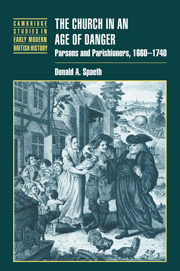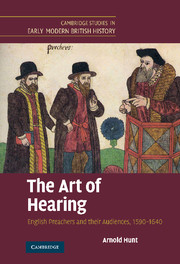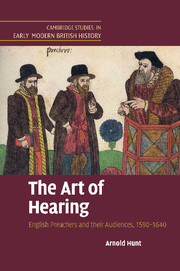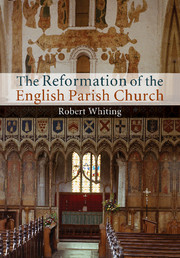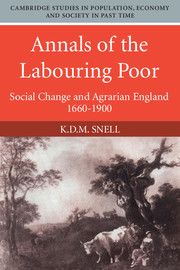The Church in an Age of Danger
This book looks at popular religion in early modern England, using detailed accounts of local conflicts to bring the religion of ordinary people to life. Unlike other studies, it examines not magical beliefs but orthodox religion. It counters the view that popular and elite culture in Europe and Britain became polarized by showing how the gentry and people cooperated in regulating religion. But while the clergy did not deserve their poor reputation, their defensiveness also prevented them from fulfilling popular religious needs.
- Uses local case studies to bring the religion of ordinary people and their relations with the clergy to life
- Gives a detailed analysis of church and central court records, showing how both lay people and clergy used these courts
- Contributes to the debate over the polarisation of society and culture, i.e. the positive versus the negative image of established religion
Reviews & endorsements
"...a book to enjoy arguing with: the revisionists must now raise their game." American Historical Review
"a meticulous piece of scholarship...[a] stimulating and important study.' HISTORY: Reviews of New Books
"This ground-breaking monograph deserves a wide readership." The Catholic Historical Review
"Important books grapple with difficult issues and raise serious questions, and The Church in an Age of Danger is an important book that will be required reading for serious students of early modern British religious history years from now. Of how many works can that be said?" Anglican and Episcopal History
Product details
November 2005Paperback
9780521023696
300 pages
230 × 153 × 24 mm
0.462kg
1 map
Available
Table of Contents
- 1. Introduction
- 2. Clerical profiles
- 3. Arenas for conflict
- 4. The management of disputes
- 5. Pastoral care
- 6. Tithes and religious conflict
- 7. The nonconformist threat
- 8. Popular observance
- 9. Matters of life and death
- 10. Singing and religious revival
- 11. Conclusion.

